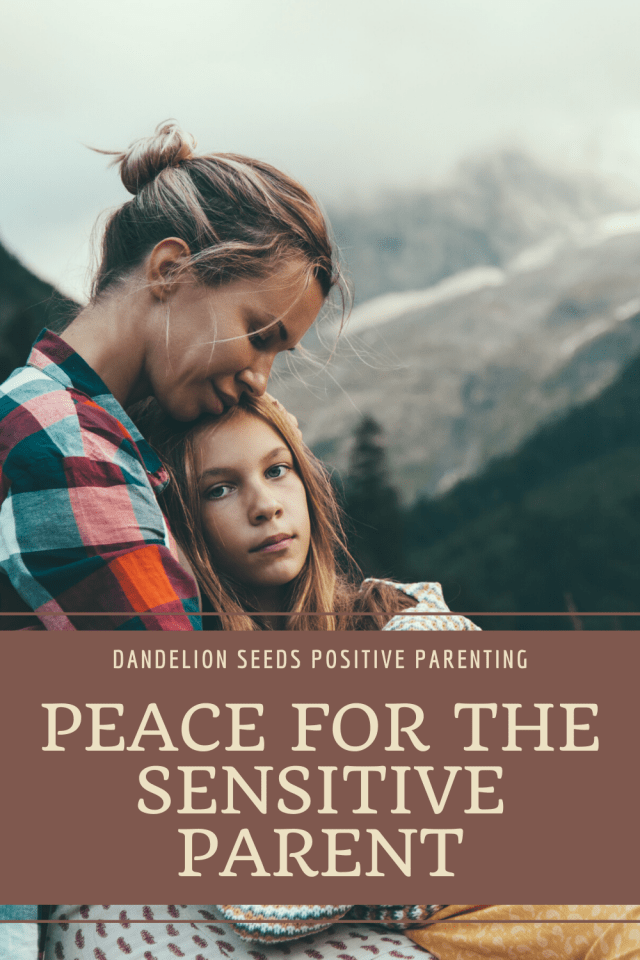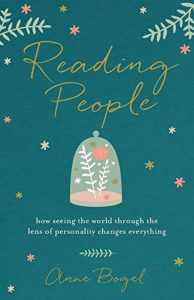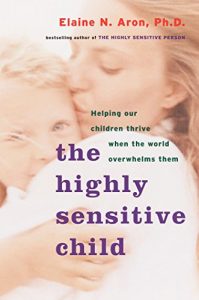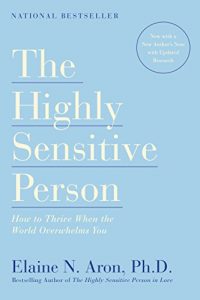
Sign in
Don't have an account with us? Sign up using the form below and get some free bonuses!

The Highly Sensitive Person (HSP) may be relatively new as a namesake, but it's certainly not new as many people's reality. Some of us are just wired differently than others, be it from nature or nurture (although in this case, science argues for both).
With our sensitive wiring in mind, those of us who become parents need to learn parenting strategies that are not only effective, but also keep us from feeling overwhelmed by our children--the very people whose care has been entrusted to us.
Personally, I know the HSP life well. I'm the daughter of a highly sensitive person. I, myself, am an HSP. And now, I have little one of my own. I write this based on years of research as well as from my own experience. In other words, I "get it."
My hope is that my research will help the HSP parent find greater peace in their parenting strategies.

In short, MRIs show that the HSP has a nervous system that works differently than that of the other 75 to 80 percent of the population. However, HSP traits don't necessarily manifest the same across the remaining 15 to 20 percent of the population that we comprise.
What science does demonstrate across the board for the HSP, however, is that our MRIs show distinctly different areas of brain activity versus non-HSPs in response to the same stimuli. Specifically, the MRIs show "stronger activation of brain regions involved in awareness, empathy, and self-other processing" (source).
As a result, HSPs can experience the same events entirely differently from non-HSPs. And empathic HSPs take their innate sensitivity a notch farther.
That said, there are a couple of concepts worth noting before addressing parenting strategies: "Highly sensitive people are typically introverts, while empaths can be introverts or extroverts (although most are introverts). Empaths share a highly sensitive person's love of nature and quiet environments, their desire to help others, and their rich inner life." (source)
We can use what we know to our advantage.
While mainstream parenting is, well, mainstream, we simply aren't. Therefore, we can't expect that standard parenting strategies would work well for us. If we try to fit into a certain "box" that doesn't reflect our sensitive nature, parenting might feel harder than it has to be.
Some of these ideas can lighten your load.
Many of us have what feels like a whole lot of extra neurons dedicated to empathy. And HSPs, following a standard rote of discipline that leaves us feeling disconnected from our children simply isn't a good fit.
Parent gently. This includes "parenting" yourself, too. Be kind to yourself and keep your inner (and outer) voice in check.

If HSP parents treat our children harshly, many of us will internalize the punishment and feel it ourselves on some level. If our parents were harsh with us or ignored our big feelings and we have emotional memories of that, we'll feel those feelings all over again as we administer them in our own homes. That doesn't feel good.
Of course, children do need loving limits. With practice, we can hold those loving limits compassionately with our children while also healing your own inner child.
If you're new to gentle parenting or want to learn about it in ways that support the information in the books, many positive parenting groups exist to support you. Support from likeminded parents can help you navigate to a gentler way of being.
Release the pressure to discipline the way our parents did, or our peers did, or the way some outdated parenting book said we should.
Trust your sensitivity to be your ally and your guide.
We all know we can't pour from an empty cup. We'd like to be able to take care of ourselves first. However, some HSPs find it challenging to find parenting strategies that balance self-care and our tendency to put others first.
For me, taking care of myself first just wasn't always my reality. When my child was very little, I couldn't just let her cry and "figure it out," no matter how exhausted I was. Despite the well-meaning (albeit unsolicited) advice from others, I let my heart lead my parenting.
I'd felt better if I'd parented lovingly and while being emotionally present for my child day and night.
Does that mean that I just abandoned my needs, though? Absolutely not. Something that worked really well for my family included reducing screen time and replacing it with story time. We also instituted screen-free days with unexpectedly positive results. That wouldn't work for everyone, of course, but I knew I needed my quiet time to recharge.
So, I created the best of both worlds: quiet and clutter-free areas around the house where I could go to read with (or near) her while still staying emotionally present.
I also made mornings our standard time to get out of the house. That way, I knew I could come home and everything would be quieter from that point forward in our day. Afternoons became a predictably sacred space for us.
"Home days" earned just as much priority as other appointments. I consciously worked to find the patience for positive parenting, knowing that practice would make our inner lives more peaceful. If I couldn't "go" to self-care, I brought peace to meet me where I was.
Many HSPs grew up keenly aware of their sensitivities to sounds, bright lights, and overly gregarious people. Whatever external stimuli triggered you before having kids, they're likely still there, along with the responsibility to raise children despite them. And in many cases, kids are all the noise, lights, and excitement wrapped up into little human-sized packages of energy. That's standard child behavior.
That said, this is in no way a knock on children. They're perfectly good at being exactly who they were designed to be, lights and all. Life moves on, as they say, but becoming a parent doesn't mean you're not yourself anymore. Suddenly, you're responsible for raising a human who might challenge all of your HSP-ness.
Remember how you grounded yourself before you had children. What's something you haven't done in so long that you've nearly forgotten about it, but that helped you find peace?
Consider journaling as a way to reconnect with yourself. It's proven to be a solid and reliable way to express

our own big feelings and working through them peacefully (source).
If you have an understanding partner, share your heart with them. A friend or a counselor can be a wonderful resource for an HSP, as well.
If you don't have a good circle of friends, create your community -- start somewhere. If you lack childcare or the desire to leave the house, connecting virtually can still lift you up. A video or phone chat with a faraway friend does wonders for refueling the emotional tank.
Within certain parameters, even social media can offer some benefits specifically for introverts, including the HSP. Connecting with other adults is easy to overlook because many don't consider it a "parenting strategy." However, connection is critical to our emotional wellbeing.
Connection, in turn, contributes to the emotional fuel we have on reserve for the challenging parenting days---and for all of the regular days, too. If social media starts to creep in too intrusively and negatively affect your relationships, however, know that there are many things you can do to keep your screen time in check.
Finally, not all connection needs to be with people. Connect spiritually. Connect with nature, too -- science shows how beneficial it can be for grounding ourselves (source).
Rather than trying to fit into a mainstream mould that wasn't built for us in the first place, we get to create our own parenting strategies that honor who we are. We can create an approach that  leaves us feeling encouraged and connected, even despite all the ways that parenting stretches us and pushes our boundaries.
leaves us feeling encouraged and connected, even despite all the ways that parenting stretches us and pushes our boundaries.
With the natural bigheartedness of HSPs, our children will fare better when we embrace that which comes naturally to us. There's always room for more compassion in the world.
There are a few really detailed and exceptionally good books to study, such as The Highly Sensitive Person by Elaine Aron, PhD, and Reading People by Anne Bogel (the latter is only a chapter, but it's entirely relevant). I  recommend them to HSPs who want to understand themselves better. They're also beneficial to non-HSPs who want to understand us better.
recommend them to HSPs who want to understand themselves better. They're also beneficial to non-HSPs who want to understand us better.
You can watch a movie about highly sensitive people. You can even take a online quizzes to gauge whether you're a likely an HSP. If you've read this far, though, you probably already know the answer.
I didn't need a quiz or an HSP "label" to understand my own wiring, but it didn't hurt to know what to call it so that I could research beneficial parenting strategies more effectively.
With or without a quiz, if you understand yourself to be an HSP and want parenting strategies that support you, check back here for more resources soon -- including an online session dedicated to parenting a highly sensitive child.
